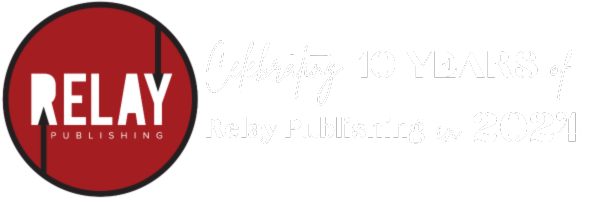Reflective writing is a powerful way to process your thoughts, feelings, and experiences. It helps us gain insight into our lives by allowing us to explore our beliefs, values, and motivations.
Through reflective writing, we can understand ourselves better and learn to make healthier choices in the future.
However, writing reflectively offers creative writers a valuable way to color their descriptive writing with personal experience, character voice, and better understanding and immersion.
This article explores how to discover your hidden potential via the magic of reflective writing.
Ready? Let’s get started.
What is reflective writing?
Reflective writing has a place in both creative writing and academic writing and employs the author’s critical thinking.
A purely descriptive piece might describe an event – one from everyday life or an extraordinary past experience.
However, reflective writing involves critical reflection, where the author analyses an experience critically, recording how the past event impacted them personally.
Reflection helps identify learning outcomes and acknowledge different perspectives, resulting in a more thoughtful way of expressing an experience.
What is the main point of a reflective essay?
The key point of reflective writing is to write analytically rather than simply descriptively.
Reflective writing is typically:
- Written in the first person – I rather than he/she/they
- Subjective – influenced by personal experience, often using more informal language and exploring self-knowledge.
- Analytical – reflective thinking demands that the writer considers their experiences, thoughts, and current knowledge. And rather than simply documenting their ideas, the writer reflects upon their interpretation, asking whether it changes meaning for them and whether their reflections are helpful for their readers.
- Free form – the practice of reflective writing often relies on free writing, finding things out through discovery on the page and preventing the “editorial voice” from intruding and interrupting the process.
However, reflective writing isn’t:
- Objective – these are opinions or facts that aren’t influenced by feelings
- Purely descriptive – of course, a reflective essay includes description, but the writer moves beyond that, exploring emotions and their personal response to the content.
- A waste of time – some people think that reflective writing is self-indulgent and pointless to read. Keep reading to find out why this isn’t true!
How do you start a reflective writing exercise?
Reflective writing is often most effective when you allow yourself to “splurge” on the page. And while you’d be unlikely to hand this writing in for a university assignment, it can help you discover WHAT you think about something.
I am writing I am writing I am writing
My favorite approach to reflective writing is free-writing. That means you keep writing until you fill a page or write for a set amount of time.
I often practice reflective writing when I’m trying to work out a plot point in a piece I’m writing or if I want to understand WHY a character is in the room in a particular scene or chapter. Or if I’m trying to determine the meaning of a critical aspect of my creative piece.
My approach works like this:
- Start with a question to answer – for example, why is John asking for the ring; what is John doing here, or even WHO is John?
- Then:
- I set about answering the question, using the type of informal language I’d use to explore the question verbally. Whenever I run out of things to write, I write:
- I am writing I am writing I am writing I am writing
- Until something new pops into my head and resets the flow.
Reflective writing is about discovery
Free writing helps release the creative mind – the idea is that you write to discover.
When I’ve reached my goal of filling a page or writing for a set amount of time, I’ll go back and read what I’ve written. And, if I wholly threw myself into the writing, I’ll find answers to questions in what I’ve written.
In fact, I often don’t even remember writing a lot of it down – that’s when I find the most exciting discoveries.
Reflective writing in this context is research. I discuss problems in my creative piece with myself, and by describing the problem, I form a response that becomes a critical part of my creative process.
What makes good reflective writing?
Be open to examine – support your creative process by finding words and a world you didn’t expect to discover.
Words are our critical material, so whether you’re writing a novel or an academic paper, good reflective writing helps you explain and focus and develop your ideas or thesis.
Where might you find reflective writing?
You can write reflectively in a range of contexts, including:
- Job applications – when preparing to apply for a job and during writing the application, reflection is one of the key elements that help you associate your experience with the demands of the prospective job. However, a job application requires a more formal tone.
- Reflections and appraisals – too much description can hamper critical reflection. An appraisal is an opportunity to consider and record things that went well while writing reflectively about how things could improve.
- Feedback – we offer feedback in many contexts: perhaps work-related feedback is the most typical example, but we also provide feedback after a purchase. Leaving a review requires consideration of the pros and cons, which reflect opinions that help other customers make future purchase decisions.
- Research – effective research involves knowledge, a comprehension of the critical elements of existing thinking, and an ability to describe what you’ve found reflectively. But, essentially, thorough research helps develop your understanding within the context of existing inquiries. Students use research to understand the many models of thinking about specific facts or beliefs, relating their findings in academic writing while making reference to esteemed academic literature or educational research.
- Blogs – many people write blogs on particular subjects, using their content to share understanding, explore learning and knowledge, and examine new insights.
Reflective writing encourages self-awareness
When engaging in reflective writing, it’s essential to be honest with yourself about your thoughts and feelings to understand why you think or act in specific ways.
You might write a reflective journal, using the personal, private space to explore patterns of your behavior through reflective writing exercises, helping develop a focus on self-improvement.
Reflective writing might help explain problematic behaviors that could hamper your relationships with other students or identify support that might develop your thinking.
Through this mode of reflective thinking, we can become more mindful of how our actions impact those around us and ourselves.
However:
Be kind to yourself!
While reflective writing can help support change in your life, you must approach critical reflection with balance. It’s easy to find fault in ourselves – the process of self-examination should help bolster your confidence; not batter it.
You could easily end up thinking your way into depression – so be kind to yourself – it’s about discovery, not self-flagellation.
Reflective writing allows for personal growth
Reflection provides an opportunity for personal growth; when looking back on experiences, it gives us a chance to recognize what worked well and what didn’t so that we can adjust accordingly in the future if needed.
This type of reflective practice enables us to identify areas where improvement may be necessary, such as communication skills or problem-solving strategies, which could ultimately lead to professional development opportunities down the road if pursued further.
Reflective writing aids decision making
Taking time out from our busy lives to reflect on our experiences and decisions can help us make better choices going forward.
Reflective writing in this context allows us to think more clearly about current situations and identify courses of action or alternatives that might provide a better outcome.
Reflective writing is an invaluable tool for anyone looking to make sense of their life and ultimately lead a happier and healthier life.
To conclude:
Reflective writing is a powerful tool that can help us gain insight into ourselves and make better decisions in the future.
It encourages self-awareness, allows for personal growth, and aids decision-making so that we can lead more rewarding lives. Writing reflectively can improve our academic prospects by demonstrating an ability to judge based on facts (rather than react with a knee-jerk).
Taking reflective writing seriously will open up many personal development and growth possibilities.
As reflective writing is a skill that only improves with practice, it’s essential to set aside time each day or week to reflect on your beliefs, experiences, and decisions to make the most of this valuable tool.
Harry Wallett is the Founder and Managing Director of Relay Publishing. Combining his entrepreneurial background with a love of great stories, Harry founded Relay in 2013 as a fresh way to create books and for writers to earn a living from their work. Since then, Relay has sold 3+ million copies and worked with 100s of writers on bestselling titles such as Defending Innocence, The Alveria Dragon Akademy Series and Rancher’s Family Christmas. Harry oversees the creative direction of the company, and works to develop a supportive collaborative environment for the Relay team to thrive within in order to fulfill our mission to create unputdownable books.
Relay Publishing Wants You
If you think you have what it takes to become a brilliant writer, editor, or storyliner, Relay Publishing has a range of exciting opportunities.
Find out more about us, and get in touch. We can’t wait to hear from you!



